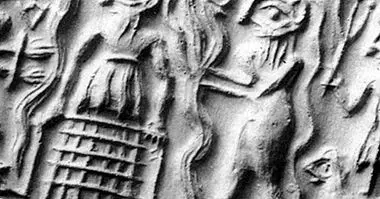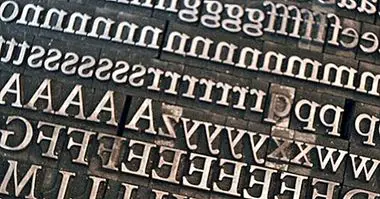Black Mirror: the best psychological series of all time?
Title Black Mirror, which translates to "Black Mirror" , refers to the screens of electronic devices. Each episode of this series created by the Englishman Charlie Brooker explores a different plot, but all of them hypothesize about the extreme consequences of technological progress for human psychology and behavior, as well as for the functioning of society.
This is why the series is extremely interesting to analyze from the point of view of Psychology .
- Related article: "Psychological series: 20 TV series that every psychologist should see"
What does Black Mirror tell us about ourselves?
Most chapters of Black Mirror they are located in contexts to a greater or lesser extent futuristic. The versions of the present and the future What the series proposes can be easily related to everyday aspects of the digital age in which we live, such as the violation of privacy on the Internet or the enormous influence of social networks, television and mass culture.
Here we will briefly comment on the episodes of Black Mirror from a psychological perspective. Beware of the spoilers!
1x01 The national anthem ("The national anthem")
Black Mirror It started with a very simple approach: to save the life of the princess of the United Kingdom, the prime minister must have sex with a pig live. This satirical chapter focuses on the public reaction to the humiliation of the elected leader - first mockery and sadism that reflect the resentment of the people against their rulers , then respect and gratitude. Rory Kinnear, who stars in the episode, masterfully transmits the peculiar emotional odyssey that crosses his character.
1x02 15 million merits ("15 million merits")
The futuristic setting of this episode is reminiscent of other science-fiction dystopias like those of A happy world Y 1984. "15 million merits" is an allegory about the increasing value of social status and of money, increasingly difficult to obtain for many, and criticizes the degradation to which the participants of entertainment programs in the style of The X Factor in order to achieve wealth and fame. Before Black Mirror Charlie Brooker created Dead Set, a zombie miniseries that satirizes Big Brother.

1x03 All your history ("The entire history of you")
What would happen Yes all our memories will be recorded in an electronic device? Of course, Black Mirror offers pessimistic answers: we would live anchored in the past, we would review obsessively, we would distrust natural memory and there would be voyeurs who would pay for devices extirpated to young girls, who would later be rejected by a good part of society. Although there would also be those who would choose to live free of such a machine - either by principle or by "posturing".
2x01 I'll be right back ("Be right back")
A woman clones her dead husband using the data she left on social networks, to which he was addicted. This chapter comments on the fake image that we project in the networks social (a recurring theme in Black Mirror) and explores the possibilities of artificial intelligence, which is also the backbone of another recent science fiction series, Westworld. Grief for the death of a loved one is another main issue, especially the way we cling to our memories during this process.
- Related article: "3 ways in which social networks destroy our relationships"
2x02 White bear ("White bear")
This is the first of several chapters of Black Mirror that hide key information to the viewer until the last minutes. A woman wakes up without memories in a world in which, they tell her, a virus has turned most people into mindless people who only worry about recording with their mobile everything they see. "White Bear" presents a fast-paced narrative to take to the limit the use of alien suffering as entertainment of masses . Again the resource of memory manipulation is used through technology.
2x03 The Waldo moment ("The Waldo moment")
The plot will sound: a television character whose only role is to make fun of the "establishment" is presented to the elections for the office of prime minister. In this case the candidate is called Waldo , not Donald, and it's a 3D animated bear blue (instead of orange). The chapter prophesied the frivolous, intransigent and supposedly anti-system course that politics would take in the following years due to the absolute discredit of the rulers.
2x04 White Christmas ("White Christmas")
The Christmas special of Black Mirror Take advantage of your extra minutes to tell three related stories starring Jon Hamm (Don Draper in Mad Men). In "White Christmas" a device allows to block Who we want to the point of not seeing and hearing them, and computerized copies of ourselves can be used as slaves that deal with basic computer tasks. Among other issues this episode, especially dark and disturbing, analyzes the attitude that people will adopt when artificial intelligence advances to acquire emotions and a sense of identity, and deepens in the dehumanization to which technological progress leads us.
3x01 Crashing ("Nosedive")
"Downhill" is inspired by Peeple, a real application that allows us to value other people based on our interactions with them. Following the style Black Mirror to take daily technology to the extreme, for the characters in this chapter everything depends on their assessment (between 0 and 5 stars), from social status to the possibility of finding a floor. The protagonist passes in a few hours to be a person concerned only by the appearances to the emotional catharsis of those who are liberated from the tyranny of "what they will say", embodied today in the "likes".
3x02 Playtesting ("Playtest")
A young backpacker is robbed of his credit card number and decides to try a virtual reality video game in exchange for money to be able to return home. In addition to presenting in a very suggestive way, in a nightmare environment, the possibilities of augmented reality and the personalization of video games based on personal experiences, this chapter of Black Mirror speaks of the use of technology to escape from life real from the story of the protagonist, who does not feel able to interact with his mother after his father died because of Alzheimer's disease.
3x03 Shut up and dance ("Shut up and dance")
A teenager is recorded through his webcam while masturbating, and the person who has obtained the video threatens to send it to all his contacts if he does not follow the instructions given. The paraphilias are relevant in this episode, which presents, as several others of Black Mirror, characters with whom the viewer empathizes and who happen to have carried out most morally reprehensible behavior of what is given to us to understand at the beginning of the chapter.
3x04 San Junípero ("San Junipero")
Probably the only episode of Black Mirror which can be described as positive to a certain degree, "San Junípero" is a nostalgic story that revisits the 80s. The chapter explores the possibility of Life after death through the transfer of our minds to virtual media. He also reflects on love in the last stages of life and on lost opportunities, and uses as a central theme the love relationships between homosexual and bisexual people who have lived in times when their preferences were not legitimized by society.
- Related article: "5 attitudes towards death"
3x05 The science of killing ("Men against fire")
In the alternative world of this episode, soldiers with neural implants that improve their senses exterminate humanoid beings known as "cockroaches". "The science of killing" is a particularly sinister chapter that reflects on the dehumanization to which the military are subjected in order to carry out the brutal actions of war, as well as on the false truths that governments use to justify their war campaigns before public opinion.
- Related article: "The Milgram experiment: the danger of obedience to authority"
3x06 National hatred ("Hated in the nation")
The longest episode of Black Mirror is a police thriller with a format closer to the one that would be typical of a film than the rest of the episodes of the series. In "National hatred", located in the near future and very plausible, every day the person who is labeled more times dies On twitter with the hashtag "#MuerteA". The central themes of the plot are the virtual harassment and the diffusion of the responsibility that occurs in the public lynchings that take place in social networks: if the death of someone depends on the hatred of many people, is it the fault of the victim? or of each one of those who would like him to die?



















